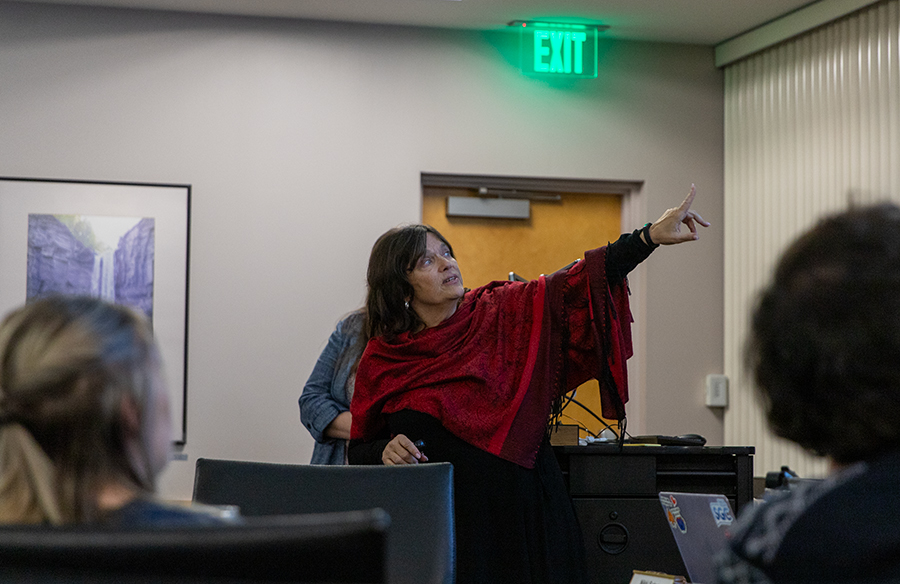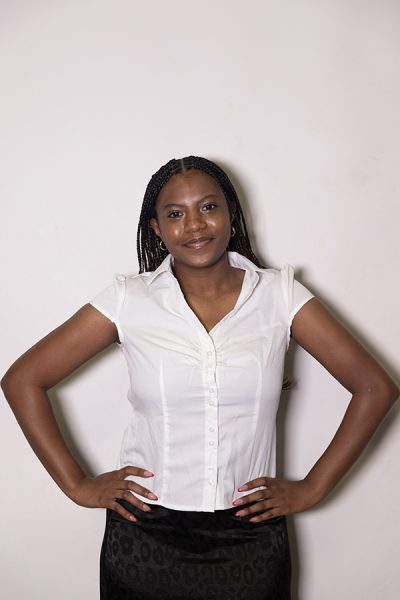The Ithaca College Student Governance Council met Feb. 26 to hear from Elizabeth Bleicher, dean for Student Success and Retention, and Allison Davis, associate director of the Center for Student Success, about how to change the culture around academics at the college and provide feedback on how to increase student engagement.
Bleicher began by giving a presentation explaining where the Center for Student Success is located, staff members at the center and an overview of the resources the center provides. Bleicher said the center made a decision to move next to the Center for Career Exploration and Development and that being next to the career center provides an easy back-and-forth between the two resources as they are often interconnected.
“One of the things that we know about students’ success is that finding a sense of purpose really drives the bus on students being able to persist and graduate,” Bleicher said.
The presentation highlighted the professional success coaches who can assist students with their classes outside of the peer coaches and tutors. The presentation also featured strategies the center uses to help retain student attention and increase engagement like the IC Advantage program, pre-registration for new students and the majors and minors fair. Bleicher also said the student body should participate in a device-free day to increase social interaction among students.
“[Coming] out of lockdown [as an extroverted person] I have lost social stamina,” Bleicher said. “People take more out of me than they used to and so that combined with [more time] on your devices, people don’t have the same skills of how to [socialize].”
Davis explained the new school-specific study sessions that the center was planning on hosting starting Feb. 29. These study sessions will be two hours long and allow students to meet with a group of people in their specific school, discuss their study goals for that session, take a break and then reconvene in the next hour and continue studying. These sessions will be held March 26, April 17 and April 29.
Davis said the purpose of these sessions was to promote study accountability because many students do not know how to study.
“Some of the things we have heard from faculty and that we see in the research, is that a lot of students really don’t know what the best strategy for studying is,” Davis said.“I’ll talk to students and they’ll tell me about how they’d like to study with a television show playing in the background. When I ask, ‘Are you productive when you’re watching [television]?’ [The student responds] ‘No, I keep focusing on the TV show,’” Davis said.
Davis said each study session would have a coach from one of the schools and groups would set intentions for studying then work on a skill that would generally benefit people in that school.
“You start at 6:30 [p.m. with a] brief [from the] success coach,” Davis said. “The coaches decided this is a topic that would be relevant for this school because the needs are so different. For example, the music [school] was more about setting boundaries. Some of the other [schools] might be more specific about skills that are specific to that school.”
First-year student Joslyn Forcione, School of Humanities and Sciences senator, asked about the study sessions and schools with majors that do not overlap and if there would be more specific programming in that case.
Davis said that they haven’t gone into the specifics of majors and that this semester is more of a proof of concept.
“I would love to see how the first one goes, and you know, this could be something that could break down into majors and be much more driven by student interest,” Davis said. “We decided this semester just to try to show this is what it could look like.”
Bleicher and Davis finished their presentation and encouraged the council to email them if they had any more feedback or questions.
During the open agenda, the council discussed their thoughts on a device-free day. Many council members provided insight into the logistics of how to make a device-free day happen and what the student body would appreciate.
Senior Molly Hankinson, Class of 2024 senator, said that in order for the device-free day to work, students cannot have their phones on them or else they would be tempted to go on it.
“How are you going to implement [a device-free day] if I have my phone on me?” Hankison said. “No way. I’m checking that.”
Sophomore Rishabh Sen, vice president of campus affairs, said that providing alternative programming to get students off their phones would be very effective.
“The idea of, there’s this all-day program going on, I can go check my phone in [at] the door, go to this event for two hours and then come out and get my phone back,” Sen said. “I think it’s better because you’re providing alternative programming.”
The SGC is the sole representative body for the Ithaca College student community. The SGC can be contacted at [email protected]
















